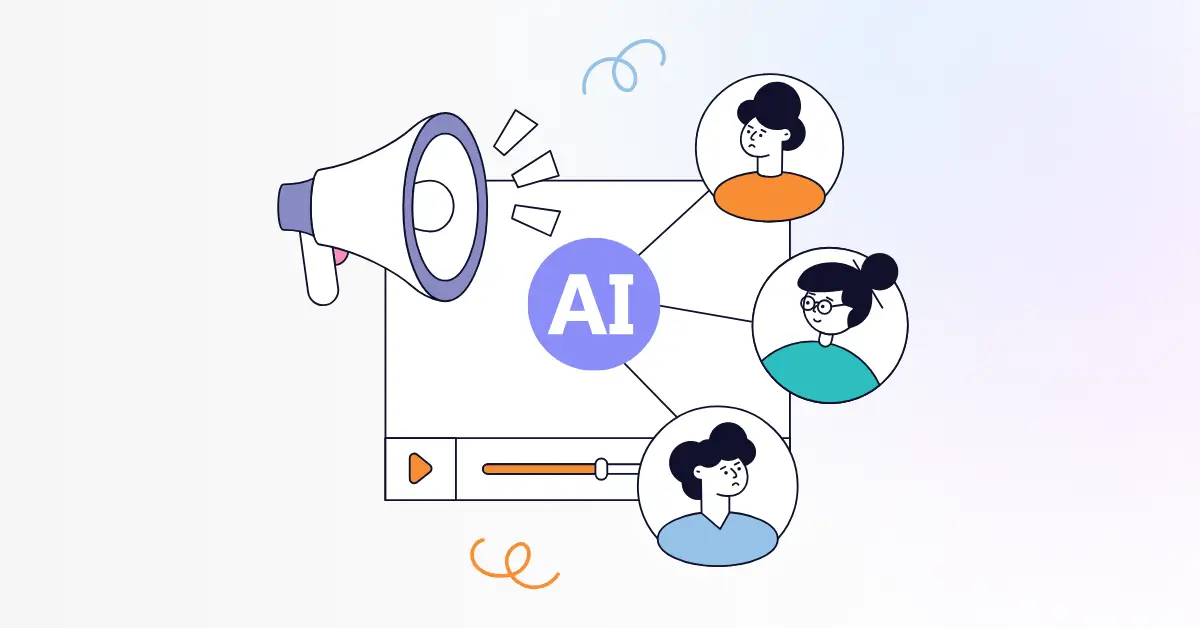AI tools for agencies are becoming essential in today’s hyper-competitive market. Personalization isn’t a luxury—it’s a necessity. Studies reveal that 71% of consumers expect personalized experiences, and 76% feel frustrated when their expectations aren’t met; according to McKinsey. For marketing agencies, the challenge lies in delivering tailored campaigns to millions of customers without compromising efficiency.
AI is helping marketers completely rethink their operations. By automating workflows, analyzing vast datasets, and delivering hyper-relevant content, AI enables agencies to scale personalization like never before.
The Personalization Imperative
Personalization drives engagement, conversions, and customer loyalty. For marketing agencies looking to keep up, AI tools for agencies are essential to personalize experiences at scale. According to McKinsey, personalization leaders see 10–30% improvements in marketing-spend efficiency and 5–15% revenue growth. However, scaling personalization across diverse audiences and platforms remains a daunting task for agencies.
AI tools solve this problem by automating data-driven decision-making, ensuring every campaign feels uniquely crafted while saving time and resources.
AI-Driven Personalization in Action
These examples show how AI tools for agencies turn data into action, driving smart predictions and impactful personalization.
1. Predictive Analytics: Anticipating Customer Needs
Predictive analytics leverages machine learning to analyze historical customer data, enabling agencies to anticipate future behaviors and deliver proactive marketing. By identifying trends and preferences, AI tools can recommend the right message, product, or offer for every customer.
Example:
- Amazon’s AI recommendation engine fuels 35% of customer purchases (MDM, 2020). The tech giant has been working and testing AI way before most of its competitors nowadays.
- Netflix, meanwhile, personalizes content recommendations using AI, though exact percentages vary. Their use of image and video recognition powers how shows are surfaced to users (Rebuy Engine, 2024).
Benefit:
Improved campaign targeting leads to higher engagement and conversion rates.
2. Dynamic Content Personalization
AI enables real-time adjustments to marketing content based on user behavior. Websites, emails, and ads dynamically adapt to reflect each user’s preferences, ensuring hyper-relevant messaging at every touchpoint.
Example:
- According to a Rebuy Engine publication; Netflix personalizes not only recommendations but also the artwork and descriptions for shows, creating a unique homepage experience for each user.
- Sephora’s integration of AI across its digital and in-store platforms enhances the shopping experience and customer loyalty (Redress Compliance, 2025).
Benefit:
Increased engagement through content that feels uniquely tailored to the individual. You can learn more about content creation with AI here.
3. AI-Powered Customer Segmentation: Hyper-Targeted Audiences
AI tools automatically segment audiences into precise micro-groups based on behavior, demographics, purchase history, and engagement patterns. Unlike traditional segmentation, which relies on broad categories, AI uses clustering algorithms to identify nuanced audience clusters. This enables agencies to craft campaigns and offers that speak directly to each group’s motivations and preferences—at scale.
Example:
- Nike uses AI-driven segmentation to identify “at-risk” customers and triggers personalized re-engagement campaigns, resulting in higher retention and loyalty (Digital Silk).
- Spotify’s AI-powered segmentation delivers individualized playlists and notifications, increasing user satisfaction and listening time (Marketing AI Institute).
Benefit:
Highly accurate targeting leads to better conversion rates and more efficient marketing spend, as agencies can focus effort and budget on the highest-value audience segments.
4. Conversational AI & Automated Personalization: One-to-One Engagement at Scale
Conversational AI—such as chatbots and virtual assistants—enables agencies to deliver instant, one-to-one engagement across digital channels. These AI-powered systems can answer questions, recommend products, and even complete transactions, all while using customer data to personalize every interaction. This allows agencies to scale “human-like” conversations and tailored experiences to millions, 24/7.
Example:
- LEGO’s “Ralph” chatbot on Facebook Messenger converses with shoppers and recommends the perfect LEGO set based on each user’s unique needs, achieving a 3.4x higher return on ad spend compared to standard web ads (Poptin).
- Sephora’s chatbot delivers personalized product suggestions and books in-store appointments, leading to higher conversion rates and improved customer satisfaction (Renasence).
Benefit:
Scalable, automated conversations drive deeper engagement, improve customer satisfaction, and free up staff for higher-level strategy.
How AI Tools for Agencies Transform Marketing
With the right AI tools for agencies, workflows become smarter, decisions more data-driven, and results easier to scale. Tools like Aurora empower marketing agencies by addressing the most pressing challenges in scaling personalization. Here’s how:
• Streamlined Workflows: Automate repetitive tasks like content creation and segmentation.
• Enhanced Collaboration: Centralize campaign data and insights for seamless teamwork across clients and projects.
• Data-Driven Decision-Making: Upload campaign data to optimize strategies and maximize ROI with AI-driven insights.
• Proactive Campaign Planning: Aurora’s SmartFlows feature helps agencies design step-by-step workflows that ensure consistent execution across marketing campaigns. By breaking down complex processes into clear, repeatable steps, agencies can achieve better alignment and efficiency.
These points show how Aurora integrates into a marketing agency’s workflow—from data analysis to campaign execution—creating streamlined processes.
Conclusion
AI tools are transforming marketing agencies into personalization powerhouses, enabling them to deliver exceptional results for their clients. From predictive analytics to dynamic content personalization and proactive campaign planning, AI empowers agencies to create campaigns that resonate deeply with audiences. As competition grows, agencies need every advantage. AI doesn’t just offer efficiency—it offers intelligence. From insights to automation, AI tools for agencies help teams think faster, execute better, and connect deeper with their audiences.
It’s clear that AI tools for agencies are the foundation for scaling personalization and exceeding client expectations.
